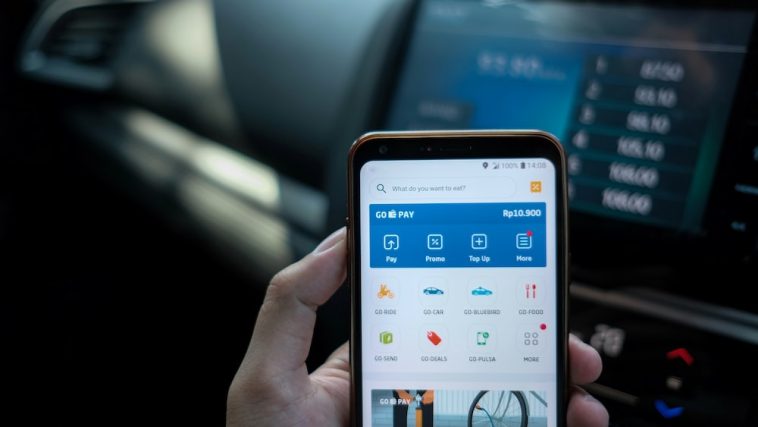Introduction.
Starting a fintech company in Nigeria is a big step, but it’s also an exciting one. Nigeria has one of the fastest-growing fintech markets in Africa.
With millions of people still underserved by traditional banking systems and a booming mobile phone user base, the opportunities are endless.
If you’ve ever thought about creating a solution that can make payments easier, help businesses manage their money, or improve access to loans, this might be the perfect time to jump in.
In this guide, I’ll walk you through what it takes to start a fintech company in Nigeria, from understanding the market to setting up your business legally, finding the right team, and raising funds.
Why Fintech Is Thriving in Nigeria
Fintech is growing rapidly in Nigeria for several reasons:
- Huge Population: Nigeria is the most populous country in Africa, with over 200 million people. This creates a large market for financial services.
- Limited Access to Banking: Many Nigerians don’t have access to traditional banks. Fintech offers them alternative solutions, especially through mobile technology.
- High Mobile Penetration: Over 40% of Nigerians own smartphones, and mobile internet usage is rising. This makes it easier to reach people with digital financial services.
- Government Support: The Nigerian government and the Central Bank of Nigeria (CBN) have policies supporting fintech innovation, such as the Sandbox Framework and the Payment System Vision 2020.
- Investment Growth: Fintech startups in Nigeria raised over $600 million in 2021 alone, showing strong interest from local and international investors.
How Do I Start a Fintech Company In Nigeria?
1. Understand the Problem You Want to Solve
The most successful fintech companies solve specific problems. Are you helping businesses process payments faster?
Are you giving people access to microloans? Spend time researching real challenges people and businesses face with financial services. Talk to potential customers to understand their pain points.
2. Do Market Research
Once you’ve identified a problem, study the market. Look at existing solutions and identify gaps you can fill.
For example, if mobile money apps already exist, how can you make yours different? Research your competitors like Flutterwave, Paystack, and Carbon to learn from their successes and challenges.
3. Choose a Niche
The fintech industry has several areas you can focus on, including:
- Payments (e.g., digital wallets, peer-to-peer transfers)
- Lending (e.g., microloans, salary advances)
- Wealth Management (e.g., savings apps, investment platforms)
- Insurance (e.g., health or auto insurance platforms)
- Cryptocurrency (e.g., trading or payment solutions using crypto)
4. Understand Regulatory Requirements
Fintech is a highly regulated industry, and in Nigeria, you’ll need to comply with guidelines from the Central Bank of Nigeria (CBN). Some key licenses include:
- Payment Service Provider License
- Microfinance Banking License
- Mobile Money Operator License
You can start by visiting the CBN website to check the requirements or consult a lawyer who specializes in fintech regulations.
5. Develop a Business Plan
A solid business plan is your roadmap. It should outline:
- The problem you’re solving
- Your target market
- Revenue model (e.g., will you charge transaction fees or subscription fees?)
- Growth strategy
- Financial projections
Having a clear plan also helps attract investors.
6. Build the Right Team
You can’t do it alone. Build a team with expertise in technology, finance, and marketing. For example:
- A CTO (Chief Technology Officer) to handle app development
- A CFO (Chief Financial Officer) to manage finances and compliance
- A Marketing Manager to promote your product
7. Create Your MVP (Minimum Viable Product)
Before you build a full-fledged app or platform, start with an MVP. This is a basic version of your product that solves the main problem. It allows you to test the market and get feedback from early users.
8. Secure Funding
Fintech startups can be capital-intensive, especially because of licensing and technology costs. Here are some funding options:
- Bootstrapping: Use personal savings or funds from friends and family.
- Grants: Apply for grants from organizations like the Tony Elumelu Foundation or the African Development Bank.
- Venture Capital (VC): Pitch your business to investors who specialize in tech startups.
9. Launch and Market Your Product
Once your product is ready, it’s time to launch. Use social media, influencer partnerships, and community outreach to promote your platform. Build trust by highlighting your product’s security features and customer testimonials.
10. Focus on Customer Support and Growth
Great customer service can set you apart. Respond quickly to inquiries, fix issues promptly, and keep improving your product based on user feedback.
Common Challenges and How to Overcome Them
1. Regulatory Hurdles
Regulations can be confusing and time-consuming. Work with a lawyer who understands fintech to ensure compliance.
2. Building Trust
Many Nigerians are still skeptical about digital financial services. Focus on security, transparency, and clear communication to earn their trust.
3. Competition
The fintech space in Nigeria is crowded. To stand out, offer better user experiences, competitive pricing, or unique features.
FAQs
Q: How much money do I need to start a fintech company in Nigeria?
A: It depends on your niche and scale, but you may need between ₦10 million and ₦50 million to cover licensing, technology, and marketing costs.
Q: Do I need to know how to code?
A: No, but it helps if you understand the basics of app development. You can also hire developers to handle the technical side.
Q: How long does it take to get a CBN license?
A: It can take several months, depending on the type of license and how well you meet the requirements.
Q: Can I operate without a license?
A: No. Operating without the necessary license is illegal and can lead to heavy penalties or closure.
Conclusion
Starting a fintech company in Nigeria is challenging but rewarding. By solving real financial problems, you can make a positive impact while building a profitable business. I hope this guide has given you a clear path to get started.
So, what problem in the financial sector do you think you could solve? Let’s hear your thoughts!





GIPHY App Key not set. Please check settings